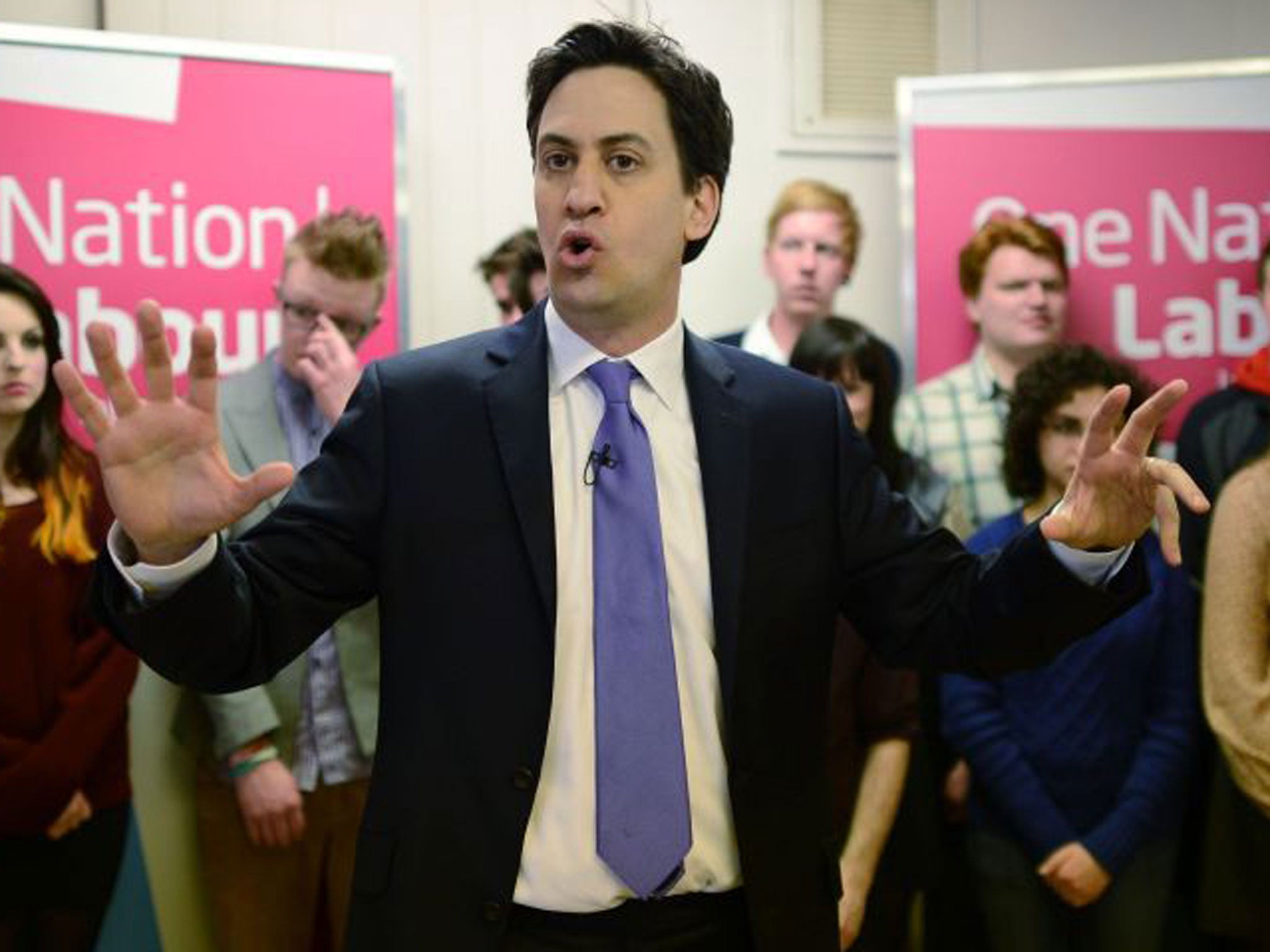Labour's return from the local elections shows a party that has missed the electorate's sweet-spot
The last few weeks have been disastrous for Miliband. And this was no turnaround

The three words Labour needs to hear from these elections are “change course now”, not “one more heave”.
What is undeniable is that the Tories had a pretty bad night in Thursday's local elections. UKIP has certainly done well, as expected, but it also still needs to show conclusively that it is not merely the last in a distinguished British tradition of protest parties.
Let us turn, however, to the party currently - in theory, at least - most likely to form a government in two years' time. Miliband's team is doing its job and spinning that it has done pretty respectably - it won back two councils and a bunch of seats. It also had media-friendly wins in the South Shields by-election and North Tyneside mayoral contests (both of which, sadly, are poor indicators of national popularity).
It is easy, however, to look superficially at the results and miss a few things; things which spell danger for Labour, if it fails to read between the lines.
First, the underlying story is the Coalition doing badly; not the same as Labour doing well. The Coalition's pain is largely down to Tory voters voting UKIP in midterm protest, but a large portion of those voters are likely to return to the Tories in the harsh light of a general election, where Tory voters realise that their local UKIP candidate will not win. This effect tends to make Labour look like it has done better than it has.
Parched
Second, put in historical context, it's really not that good at all: the last time these seats were fought was in 2009 - a Labour meltdown in which it lost the only four councils it held. In other words, Labour is coming from such a low base that anything short of a big comeback does not augur well.
In the end, it still has less than half the council seats it had when it last won a general election. Neither has it staged any kind of comeback in the South - another essential prerequisite for a general election win.
But Labour can still win and is still ahead in the polls: so what is the danger?
Well, this seemingly modestly positive news is likely to come as water in the desert to Miliband after a pretty terrible fortnight: first, the gossamer-veiled demand made by the country's most powerful union leader, Len McCluskey, to sack three of his cabinet, forced him into an angry and unprecedented rebuttal , where he called McCluskey's action "reprehensible". It is difficult to see this relationship being mended any time soon.
Next came a car-crash interview on The World At One, where Miliband avoided answering the question - thirteen times - of whether a Labour government would increase spending; only to be followed the next day by an apparent reversal, where Labour finally recognized that it would have to increase debt in the short term.
This last admission will surely be used relentlessly by the Conservatives in the run-up to the general election as a sign of Labour returning to its old, tax-and-spend ways; and the game of brinkmanship with the Unite union could have even more far-reaching implications to both party unity and political direction. McCluskey is not beyond holding Labour to ransom. The recent impression given has therefore been of a disorganised opposition, buffeted by events.
Nationally, between six and eight per cent separates Labour from the Tories - less than the solid double-digit lead it sustained during most of 2012, but still respectable. Isn't it?
Well, actually, not so much. Polls tend to narrow by a double-digit amount over the last couple of years of a parliament - meaning that this lead is wholly insufficient for a win. Taken together, all this information points to a failure to reach the electorate's sweet spot, rather than a party set for office.
Deceptive
In other words, Labour's modest "success" on Thursday and in the polls, such as it is, is deceptive. Miliband had a pretty awful first year as leader but his second was better, largely due to a year of unforced Coalition errors and a poorly-performing economy.
The danger for Labour is that the results will be grasped at as vindication that feeds a one-more-heave narrative.
Labour, never a party slow to delude itself when the opportunity arises, will see the appeal of Miliband's somewhat fuzzy "responsible capitalism" as the architect of this "success", rather than asking itself the tough questions; the difficult choices of where to spend when there is virtually no money.
In other words, last year's respectable-but-lucky performance by Labour will be seen as the norm, the proof that its largely empty programme is resonating with the public. And it will see the last, disastrous few weeks as the blip rather than chickens coming home to roost.
The alternative reading, probably closer to the truth, is that it is far more likely to be the other way around.
Labour needs a radical turnaround - at the moment, at best it is on course to limp over the finishing line, and then probably only in the event of a Tory collapse.

Join our commenting forum
Join thought-provoking conversations, follow other Independent readers and see their replies